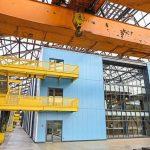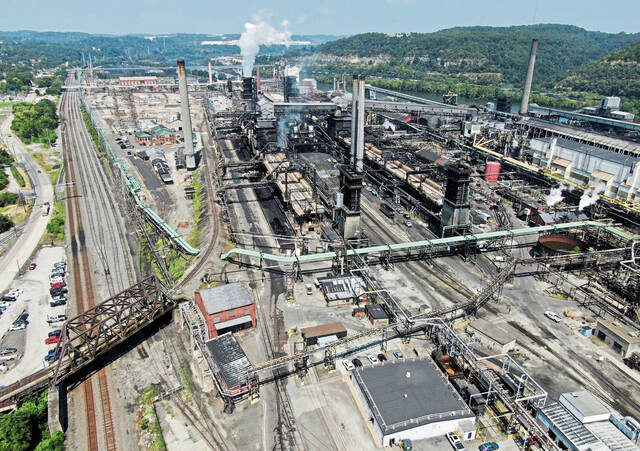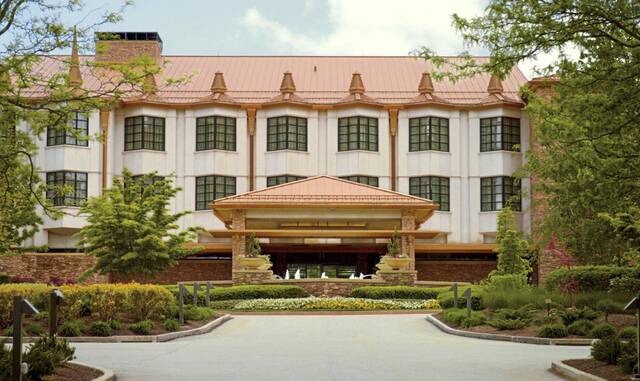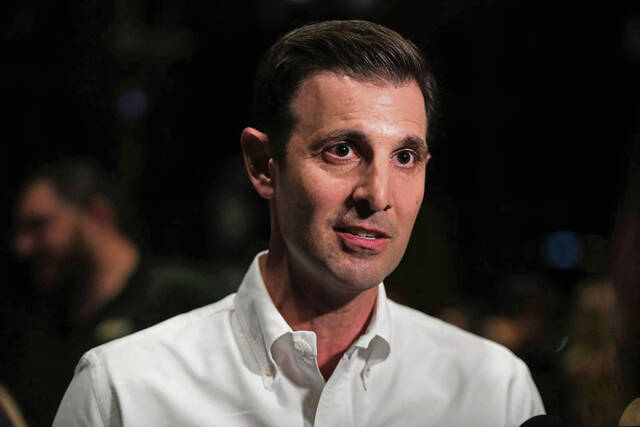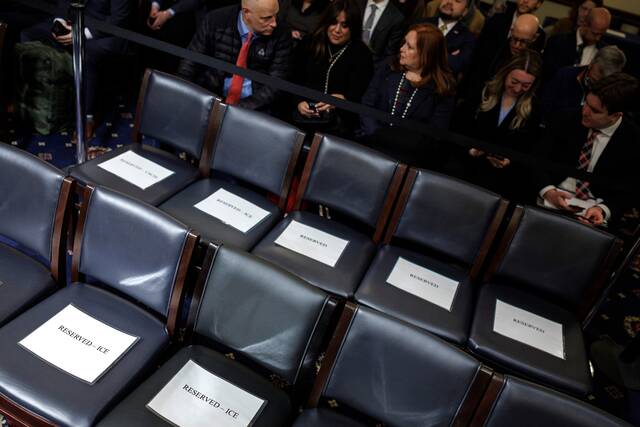The Richard King Mellon Foundation on Thursday announced its largest ever grant — $150 million to Carnegie Mellon University.
Half of the historic investment — $75 million — will go toward the construction of CMU’s long-awaited, cutting-edge $210 million science building on Forbes Avenue, adjacent to the Carnegie Museum in Pittsburgh’s Oakland neighborhood. The remainder will go toward development of a $100 million Robotics Innovation Center and an institute focused on advanced materials and manufacturing at Hazelwood Green, a reclaimed site once occupied by the massive steel mill.
Officials at the university characterized the grant, which is part of an ongoing seven-decade partnership between the foundation and school, as a transformational investment in science and technology leadership at CMU and the revitalization of Pittsburgh’s Hazelwood neighborhood.
It was a natural for the Richard King Mellon Foundation, which has been a partner in the development of what’s become Hazelwood Green since 2002. That year, Mellon joined a coalition of local foundations to acquire the property as an entity named Almono.
CMU President Farnam Jahanian said the goal of the latest grant, an investment in creating knowledge and stimulating economic activity and innovation, has been part of the university’s DNA ever since the Carnegie Institute of Technology and the Mellon Institute joined forces decades ago.
Sam Reiman, director of the foundation, said the partners are optimistic that their 10-year plan will be one that not only seeds the expansion of robotics and advanced manufacturing in the Pittsburgh region but which also provides job opportunities for members of the community left behind by the changing economy.
While scientists with advanced degrees are steering the development of industry through artificial intelligence, robotics and additive manufacturing, Jahanian said, those industries also provide opportunities for employment for those with certificates from community colleges and specific workforce training.
The partners said they hope to engage with local K-12 schools, community colleges and workforce training initiatives to ensure a good fit with the local workforce.
“Part of the strategic plan is to merge economic development with economic opportunity,” Reiman said.
“This historic investment will help Pittsburgh to control its economic destiny and to reassert its rightful place as the national leader in the most important industries of today and tomorrow, with access to everyone who wants to be part of the story,” Reiman said. “The Hazelwood community has been waiting for more than 18 years, since the J&L mill closed, for the site to become a source of jobs once again.”
Audrey Russo, president and CEO of the Pittsburgh Technology Council, said the effort is great news that should resonate well beyond Carnegie Mellon.
“I am very excited,” Russo said. “Robotics and making stuff is part of our DNA. So, it’s not just Carnegie Mellon who will benefit, it is all of us. It’s telling the world we are Roboburgh. It is a massive contribution to the community and the technology system.”
The foundation grant is expected to push the 150,000-square-foot Robotics Innovation Center at Hazelwood Green to completion by the 2025-26 academic year. Officials said the center is expected to attract additional development to the site and will create synergies and accelerate the work of CMU’s Manufacturing Futures Institute, now on the site in Mill 19.
Carnegie Mellon announced plans for the other piece of the puzzle, a new science building to be built on the corner of Forbes Avenue and Craig Street, nearly a decade ago. Jahanian said that missing piece is just as critical to the picture as the center at Hazelwood Green. He said the building will house the nation’s first academic cloud facility, an approach designed to allow scientists to conduct research remotely and encourage collaboration across disciplines.
The long-planned facility is designed to build on a long campaign to recruit world-class science faculty and expand scholarship and fellowship opportunities. It should be open for the 2026-27 academic year, officials said.
Jahanian said it will allow scientists to focus on the kind of cross-disciplinary research that has provided the dramatic leaps that allowed for the rapid development of vaccines and is fueling advances in various fields at rates heretofore unseen.
The latest grant to CMU is part of the Richard King Mellon Foundation’s plan to invest $1.2 billion in the region over the next decade.
The foundation, launched by Richard King Mellon in 1947, has played a significant role in the region’s development. It has underwritten everything from Pittsburgh’s original emergence from its status as the Smoky City during Renaissance I in the 1950s to recent efforts to meet community needs during the pandemic shutdown.
In addition to being the region’s largest, the foundation is one of the Top 50 in the world, according to ARCO. A 2019 financial statement pegged its assets at $2.7 billion.





